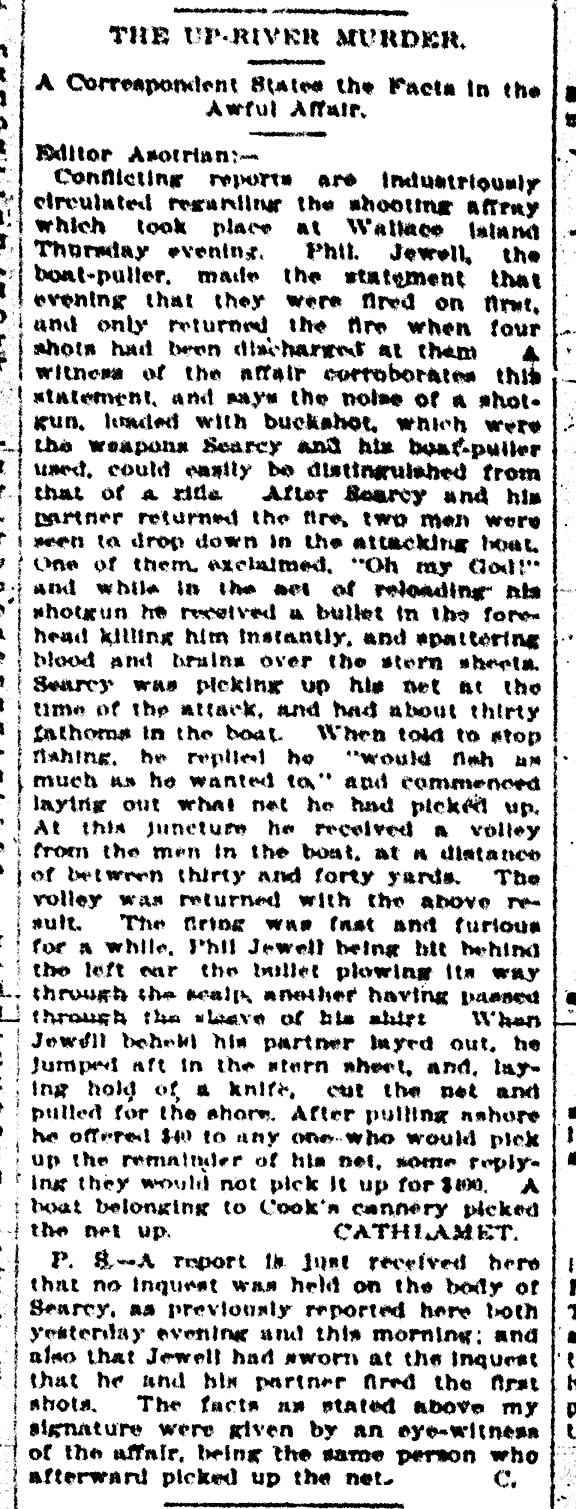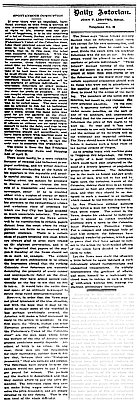This article, published in the Daily Morning Astorian on May 24, 1896, describes an incident that occurred during the 1896 fishermen’s strike on the lower Columbia River. This strike was one of the most important, and violent, labor actions in the area’s history.
In March 1896 some of the largest salmon packers on the lower Columbia River consolidated their operations into a new organization called the Columbia River Packers Association. One of the association’s first acts was to fix the price they paid to fishermen at 4 cents per pound, less than they had paid the previous year. The Columbia River Fishermen’s Protective Union, which represented most of the lower river gillnetters, said they would accept no less than 5 cents per pound. When the canneries refused to meet their price, the gillnetters went on strike.
Despite the union’s reassurances that they intended to keep the strike peaceful, the governor of Washington quickly sent national guard troops to Ilwaco to protect the town’s fish trap owners, with whom the gillnetters had long been in conflict. Nevertheless, the strike remained fairly peaceful for the first few weeks, though the gillnetters did destroy some traps that they considered illegal impediments to navigation.
The peace broke on May 21 when a group of men opened fire on a non-union fishing boat, killing one of the men onboard and wounding the other. The incident is described in the article reproduced here. The Daily Morning Astorian reported that although union leaders had been trying to keep the strike peaceful, “when they begin to feel the pangs of hunger, and when their little ones at home are subjected to want, men become desperate, and desperate men cannot be controlled.” The newspaper stated that they had no doubt that striking fishermen were responsible for the attack.
Further acts of violence were reported as the strike dragged on into June. Striking fishermen assaulted non-union fishermen and destroyed their gear and boats, and there were scattered reports of non-union fishermen being shot at, though no one else was killed.
Oregon’s governor responded to the growing conflict by deploying a national guard regiment to Astoria on June 16. No serious acts of violence were reported after guardsmen began patrolling the river in boats armed with Gatling guns. The union called the strike off on June 20 when the canneries agreed to 4½ cents per pound, and the troops left Astoria shortly thereafter.
Further Reading:
Martin, Irene. Legacy and Testament: The Story of Columbia River Gillnetters. Pullman: Wash., 1994.
Smith, Courtland L. Salmon Fishers of the Columbia. Corvallis, Oreg., 1979.
Written by Cain Allen, © Oregon Historical Society, 2006.

